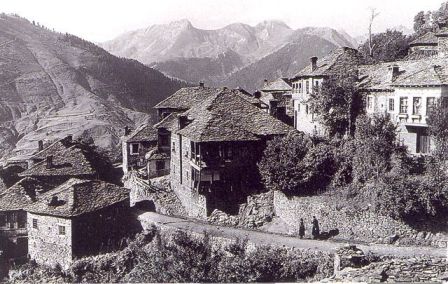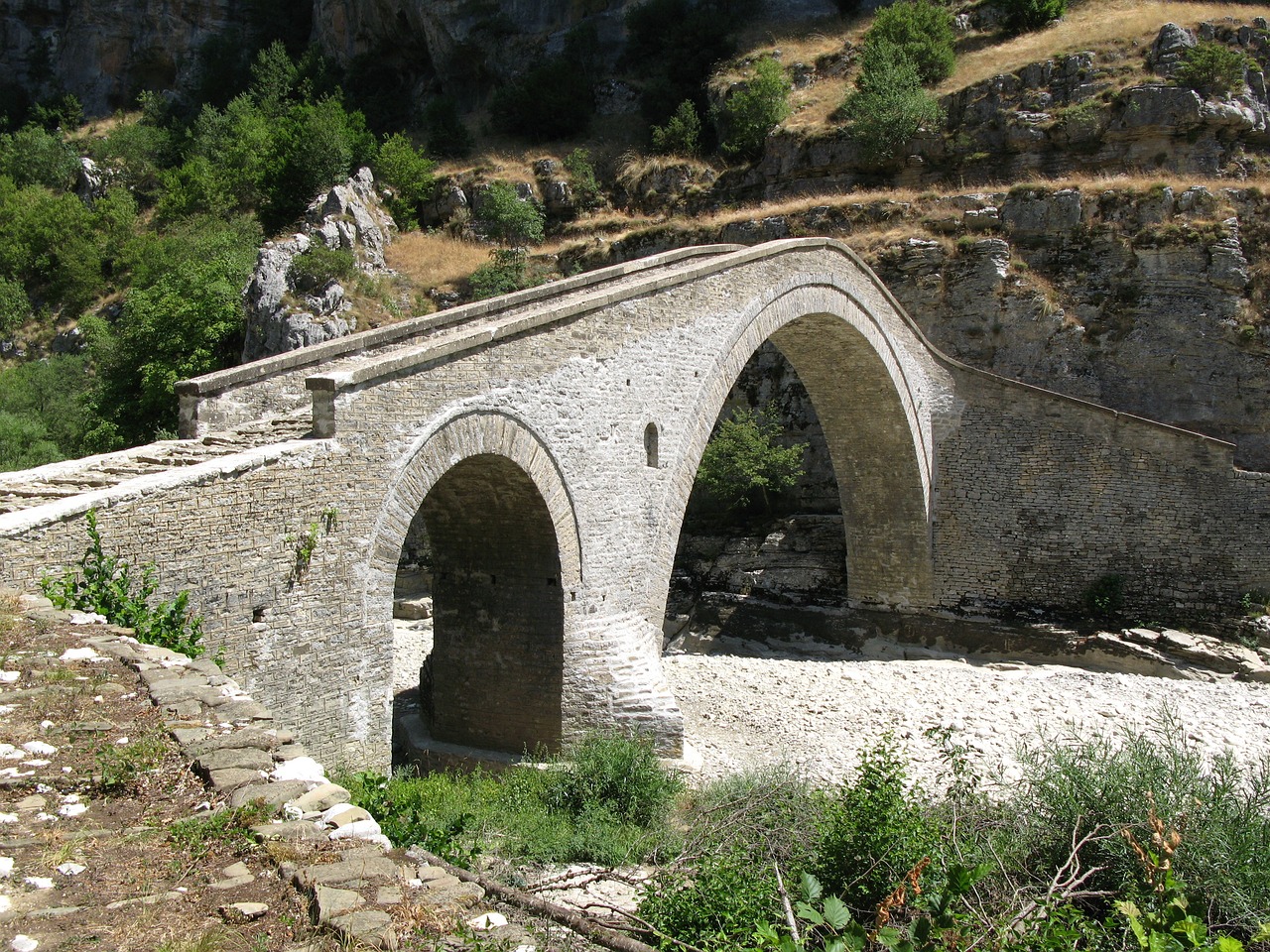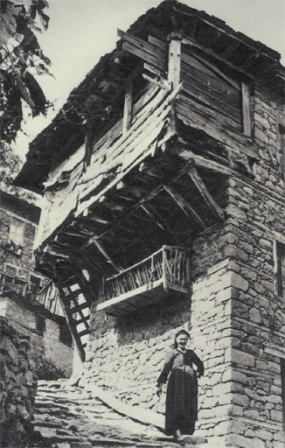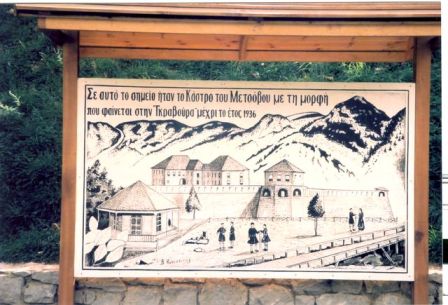History

It is noteworthy that since the 10th century until the late 18th century, Metsovo is under privileged status.The Kon / nos Porphyrogenitus in the 10th century, Andronikos III in the 14th century, Sultan Murad II in 1430, Sultan Mehmet D in 1659, granted successively to Metsovo and the neighboring villages privileges to which they are provided with financial facilities , political freedoms and administrative and ecclesiastical autonomy.Their aim is to ensure the cooperation of residents to control the mountainous passage of Libra or Katara, which communicates through Epirus and Thessaly and Western Macedonia.
Metsovo, thanks to the special privileges they made significant commercial, financial, spiritual and cultural progress.Furthermore, because of its geographical position was particularly important transport hub and staging point absolutely necessary for refueling and rest of the caravans and travelers.
Thus, in the late 19th century (1880) Metsovo with Anilio numbered 830 “houses” and about 7.000 inhabitants, while in 1888 there were four in Metsovo ovens, seven Bs, seven slaughterhouses, eleven groceries, a Greek school (Gymnasium), two girls’ schools and two kindergartens (one male and one female).Simultaneously, from the previous centuries, flourished know woodcarving, weaving and silverwork. Great damage Metsovo suffered on March 27, 1854 by Turkish troops Avdi Pasha after the uprising of Metsovo, a chieftain Theodorakis Grivas (“chaos of Grivas’), Which lasted three days. After the battle Metsovo looted and burned many homes. Progress in Metsovo after the destruction of Grivas due to the many benefactors that made the city, who with their rich legacies they left, supported it financially.Metsovo was liberated from the Turks on October 31, 1912 by forces of the regular Greek army of Epirus and Cretan volunteers.
Crucial fact about the modern economic and cultural development of Metsovo is the Baron Michael Tositsa Foundation, created in 1948 by the same benefactor, at the instigation and encouragement of Evangelos Averof Tositsa.
In the great men of Metsovo Metsovo include the martyr Nicholas, the Masters of the Nation Nikolaos Tzartzoulis, Parthenios Katzioulis, D. Vardakas, Trifon the Monk and Adam Tsapekos.

Many are national benefactors like George Averof, Nicholas Stournaras, Michael Tositsas, Triantafillos Tsoumagkas, Kyriakos jib and Baron Michael Tositsas.

Finally, it was important and national fighters Dimitrios Ipatros, Anastasios Manakis, John Gkadelos, Apostolos Hatzis, Dimitrios Zamanis and political benefactor Evangelos Averof Tositsas.
Epirus is a geographical sense, shall be reported until the second half of 4th century BCAnd, as a political concept, first appears in 330 BC the alliance of Epirus.
The Epirus throughout the length was divided into tribes that formed the basis of political life.Culturally and linguistically, the continents were connected with Macedonia, but the influence of culture in southern Greece started relatively early (the first coins date from the 4th century BC).Main occupation of the inhabitants of Epirus were agriculture and livestock, so that urban development is very limited. The first cities were founded only in Hellenistic times.From these settlements stood like Passaron the Tekmon, Kassope, Amvrakia and especially Dodona center of worship of Zeus Pelasgians, and the whole region experienced periods of prosperity, especially during the reign of Pyrrhus (297-272 BC .) uniting under the leadership of all the tribes of Epirus.
From the second millennium BC stated that inhabited the region of Metsovo shepherd people who spoke Greek, as Aithikes and perhaps Timfea.These parties have not identified prehistoric remains, despite Greek and Roman installations, such as Koutsoufliani on Politsies and Votonosi while always passing through the region’s main crossing from west to east of Pindos, excellent strategic and commercial importance.

Metsovo was mentioned for the first time in 1380 AD the anonymous Chronicle of Ioannina, where the monk Isaiah referred to as Superior Metsovo, while the inhabitants are Vlachs and are called “koutsovlachoi” or “bourtzovlachoi.”
The origin of the name is not verified. Argued that it may be Slavic and means “arkoudochori” from the Slavic word “metska” which means bear and “ovo” means village. This view does not appear correct, because the Bears are everywhere in the region.Metsovo in koutsovlachika, called “A-mitzio” meaning “in the Mitzio” in old texts written “Metzovo” and “Messovo.” It is possible that “mitzio” – “Mezzo” is a corruption of “average” and adding the Slavic “ovo” became “Metzovo.”The oldest name of the village may have been “average” or “Medium-village” which actually indicates the topographic position and the position in the middle of the area.
Older intellectuals of Metsovo, however, argue that the name comes from the name of the river Mintsio, which is near the town Ambruce Italy, the area which have their origin in themselves and Vlachs of Thessaly.
Regarding the origin of the name Vlachos, it is argued that the word or Welsch Walachen, called the Latin-speaking Germans Italians, Swiss, Belgians, French and Romanian Vlachs, which for many centuries adjacent.In their descent to Romania, the Slavs were subjugated to the Germans and Goths of Transylvania, where he came in contact with the Latin-speaking Vlachs. There listening to the Germans call them Welsch or Walachen called them and they Vlach language, namely Latin speaking.By Slavs in the Balkans spread the word = Latin speaking Vlach.

In Metsovo, apart from the Greek language, used in close, familiar, friendly and professional environment as an oral language only and koutsovlachiki. This is the “Vlach”, A neolatiniko idiom known in linguistic circles with Neologos “aromouniki” derivative Aromounos, which call themselves Vlachs or Koutsovlachoi the Greek lands. The genesis of “aromounikis”dates from the appearance of the Romans in the Greek peninsula and the cradle of the ancient road that connected the West – East, follow Via Egnatia.From the Greeks, the first users of the Latin deemed representatives of the Greek cities, who were obliged to communicate with Rome in the official language.Here the Greeks serving in the Roman army and returning to their birthplace undertake guarding timely junctions and main mountain passes such as the passage of Libra in Metsovo.The knowledge of Latin is essential qualification for the civil servants of the Roman Empire, which selects the particular preferably from among the Greeks.Helpful also is the Latin and traders, hoteliers, businessmen, scientists who wish to move freely and profitably in the vast area of the Roman Empire.
Metsovo happy throughout the period of the long historical course be given special preferential treatment, which contributed to the survival and accelerated growth rates in difficult times. In 1430 AD, granted privileges to Metsovo by Sultan Murad the SecondAs a reward for good behavior Metsovo guards of Libra to the Turkish army of Sinan Pasha, who was directed in Ioannina.
The privileges of 1430, that may be additions or improvements to pre-existing privileges, remained until 1480.Since then the Turkish troops oppressed, plundered and sometimes reached up to the murders of innocent Metsovo. The notables of Metsovo resorted to protecting the Queen Mother, which also approved to run directly from it. The protection lasted until 1648.
By removing the power of the Queen Mother was dissolved and autonomy in this part of the continent. In the period 1650-1659 Metsovo through a crisis. The residents are forced to migrate, taxation becomes unbearable and Albanian gangs loot the area.
Metsovo was able to overcome this crisis year 1659, when Sultan Mehmet the Fourth granted to Metsovo new privileges, which, according to popular tradition, attributed to Kyriakos Floca.The town of Metsovo and the neighboring settlements Malakassi, Milia, Sunless, and Votonosi Anthohori were a kind of federation, an independent democratic state in the autocratic Ottoman Empire.
These benefits have contributed to dramatic population growth of Metsovo.Residents from Premeti the Gjirokastra, the Unwritten, Grevena and Italy settled in Metsovo. At the same time founded in Metsovo banking firm with correspondents in various foreign cities like Livorno, Vienna, Alexandria, Odessa and Bucharest.Indeed, in 1719, the French built a huge warehouse in Metsovo for the collection and preservation of livestock products exported to France.Metsovo raised an important craft, commercial and financial center, and developed the craft of kapotopoiias, weaving, sewing, knitting and the manufacture of swords.Moreover, in 1700 founded idiosyntirito Greek school, which taught the most prominent teachers of Greek literature and was home growing national spirit and patriotic spirit.
The Metsovo, with the help of powerful compatriots in Istanbul, renew these privileges any change Sultan, in order to guard their independence from the whims of neighboring Validon, Katidon and Veilerveidon which any change Sultan kairofylaktousan to limits or even annihilate the power of local privileges. During this period, most families of Metsovo engaged in the processing of wool, the manufacture of carpets and clothing.The cheese is a huge development and Metsovo tyremporoi using specialist craftsmen who sent and learned the art of manufacture of cheese in Italy, mainly in Sardinia. The cheese “kaskavali” produced in the region of Metsovo and exported to Italy.
Particularly renowned Metsovo craftsmen were blacksmiths, the (stray) masons, carpenters and moldings.Many involved with the craft of coopers and samaropoiias and supplying the markets of Ioannina, Preveza, Arta, Trikala, of friendship, Larissa, Karditsa, of Farsala and other cities, with particular growth experienced by the gold and silverware.
During its peak, the Metsovo merchants had trading houses in Venice, Naples, Trieste, Marseilles, Vienna, Moscow, Odessa, Istanbul, Thessaloniki, Serres and Alexandria, Egypt.The extensive list of foreign merchants Metsovo recorded John Stana in Venice (1690), brothers Tzartzouli in Vienna and Constantine Fournigkas in Russia. Many large gounemporoi Metsovo emerged. Among them are dominated by C. Metsovo, Sun Tositsas, Anastasios.Tositsas and his sons Michael, Theodore, Nicholas, Constantine, who acted in Thessaloniki, Kavala, Serres, Alexandria and Livorno, Italy. In Trikala the active Metsovo furriers A. Premeti, Mitrakos Premeti and Dist. Premeti.
Moreover, the exploitation and tax privileges, and specifically repealing provatonomiou of tax distribution of sheep, particularly developed in Metsovo and the livestock industry. It is estimated that in 1753, Metsovo, Anilio the Votonosi, Malakassi the Koutsoufliani and Milia were 30.000 goats and 2,000 cattle (cattle).
These privileges were abolished in 1795 by Ali Pasha.In the years that followed exaplasiase taxation, forced the community to maintain Albanian guards and porters to carry people and animals of power during the winter crossing of Libra.
After the annexation of Thessaly (1881) and the promotion of Greek-Turkish border line Metsovo – Malakassi, customs barriers in Libra frustrated any hope of revival of trade in the region.
The release of Metsovo was in October 1912 by forces of the regular Greek army of Cretans volunteer scouts and Hpeiroton volunteers, and was instrumental in the overall outcome of the liberation struggle, having thus prevented from sending new forces and livelithe city of Ioannina.

After the liberation, Metsovo began to decline partly because trade shifted market of Ioannina and Trikala, partly because of loss of income from bequests, as a consequence of the First World War.However, at this critical period, shows the great benefactor of Metsovo Tositsas Michael Baron, who defines it as a life trustee of the estate of Evangelos Averof. The Foundation Tositsa founded in 1948 by the same benefactor left for this fabulous for that time the amount of 1,730.000 dollars.The mountainous and difficult region accepted the multifaceted and multidimensional contribution to the Foundation, with initiatives to conserve precious and valuable cultural and popular elements, initiatives to expand the development of agriculture, livestock and more generally on the risestandard of living.
Progress in Metsovo after the disaster of 1854 was mainly due to the many benefactors that made the city who did not restrict their beneficial effect only in Metsovo and a nationwide scale.These include the Metsovitis martyr Nicholas, the Masters of the Nation Nikolaos Tzartzoulis, Parthenios Katzioulis, D. Vardakas, Trifon monk Adam Tsapekos, National Benefactors Georgios Averof, Nicholas Stournaras, Michael Tositsas, Triantafillos Tsoumagkas, Kyriakos Flokas, BaronMichael Tositsas, National Ipatros fighters Dimitrios Anastasios Manakis, John Gkadelos, Apostolos Hatzis, Dimitrios Zamanis and political Evangelos Averof Tositsas.
In short, Metsovo particularly benefited from its geographical position and the consequent strategic importance.It was one of the most important Derveni (derbend) of the Ottoman Empire after the Ottoman administration ensure a comfortable and safe movement of troops from Epirus to Thessaly, Macedonia, Istanbul and back through the unique, and therefore particularly importantY, road crossing of Libra. It was a major center for communications, transport and transit state officials and troops. This resulted in obtaining privileges from the Ottoman Empire who acted favorably towards economic and social development.
Today, Metsovo is a standard semi-urban center with a high standard of living, impressive tourist traffic and a satisfactory quality of life. In recent years, farming has declined and the local economy boosted by tourism and artisanal production.

